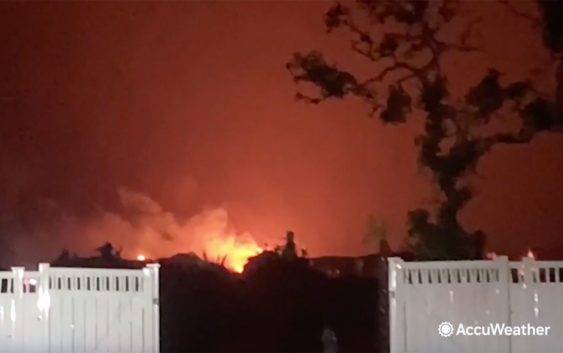- 'She will be greatly missed': Memorial service held for 77-year-old woman killed in SA floods on June 12
- San Antonio officials warn residents to stay vigilant ahead of possible Thursday nights floods
- Flooding is possible in South Texas as we head into July 4th. Here's where.
- Flood Watch issued for counties west of San Antonio | Weather Impact Alert
- Possible heavy downpours and flooding in Hill Country counties | Weather Impact Alert
What you need to know about utilities and house fires during, after a hurricane

As Tropical Storm Isaias struck Ocean Isle Beach, North Carolina, earlier this summer, several homes and cars were severely damaged or destroyed by fires, with some fires starting more than a day after the storm made landfall.
“We’re starting to see fires start due to electrical components,” Brian Smith with Back to Normal Restoration told AccuWeather. “I removed 45 golf carts from out under structures and disconnected the batteries on those. Out of the 45, 22 of them, the batteries were hot and sizzling.”
In an interview with AccuWeather, Don Griffin with American Property Casualty Insurance Association said those fires started by utilities and other electrical components should serve as an important reminder during hurricane season.
Griffin advised homeowners, “If they know that something is coming, make sure they turn off all the utilities. For the gas, like a gas stove, I’d light it, turn it on and let it run out of whatever might be stored in the pipes. Same with the water.”
Whether you evacuate or stay and ride out the storm, Griffin said turning off utilities can reduce the risk of starting or spreading fire. After the storm, let professionals inspect your property before turning utilities back on.
Click here for the latest tropical weather news.
MORE HURRICANE & SEVERE WEATHER EXPLAINERS:
Copyright © 2020 WTVD-TV. All Rights Reserved.